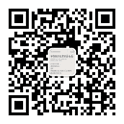| 基金项目: |
|
| 摘要点击次数: 885 |
| 全文下载次数: 361 |
| 中文摘要: |
| 目的 探讨人文管理对进修医生焦虑、抑郁倾向的干预效果。方法 选择2016年1月至2018年12月开始在首都医科大学附属北京安贞医院进修学习的进修医生进行人文管理,并以2013年4月至2015年12月的进修医师为参照,应用医院焦虑抑郁量表于进修前、后进行问卷调查。所有进修医生均采用常规进修管理模式,干预组在此基础上建立个体化进修学习日程表、配备进修医生导师、定期对进修医生进行走访并组织进修医生座谈会、协助进修医生加入科室学术群、组织协调进修医生参与多学科专病学术查房、通过巴林特小组方式进行负面情绪疏导、将进修医生文化生活融入医院文化建设和对进修结束的进修医生进行随访。应用SPSS 16.0进行t检验和方差分析。结果 两组医生进修前测评数据按照性别、进修科室类别、来源医院级别和进修时长的不同比较,焦虑和抑郁评分差异无统计学意义(P>0.05)。干预组两次测评比较,焦虑第2次评分男女进修医生[(5.90±1.37) vs. (6.48±1.87),(5.92±1.45) vs. (6.73±2.12)]、进修各科室医生[(5.50±1.23) vs. (6.76±2.35),(6.03±1.36) vs. (6.64±1.75),(5.98±1.50) vs. (6.64±2.15)]、来自二、三级医院医生[(5.85±1.29) vs. (6.64±2.02),(6.00±1.50) vs. (6.78±2.14)]、各进修时长医生[(5.92±1.37) vs. (6.64±2.15),(5.92±1.47) vs. (6.68±1.98)]和总分[(5.92±1.42) vs. (6.66±2.05)]低于第1次测评评分(P<0.05);抑郁第2次评分女性进修医生[(6.15±1.37) vs. (6.68±2.06)]、进修医技科室医生[(6.02±1.40) vs. (6.69±1.88)]、来自三级医院医生[(6.13±1.41) vs. (6.51±1.90)]、各时长进修医生[(6.04±1.42) vs. (6.50±2.02),(6.12±1.34) vs. (6.57±1.97)]和总分[(6.09±1.37) vs. (6.54±1.99)]低于第1次测评评分(P<0.05)。对照组第2次测评焦虑评分,男性进修医生评分[(6.63±1.15) vs. (6.11±1.76)]高于第1次测评评分(P<0.05)。两组医生第2次测评数据比较,焦虑评分方面,干预组各分层医生评分和总分评分低于对照组(P<0.05);抑郁评分方面,女性进修医生、来自三级医院医生、进修时长6个月医生和总分评分低于对照组(P<0.05)。结论 应用人文管理方式加强对进修医生进行管理,可以在一定程度上改善进修医生的心理状态,特别是缓解焦虑状态,是一种值得推广的进修管理模式。 |
| 英文摘要: |
| Objective To explore the intervention effect of humanistic management on anxiety and depression tendency of visiting physicians.Methods The visiting physicians who began to further study in Beijing Anzhen Hospital, Capital Medical University from January 2016 to December 2018 were selected for humanistic management, and the visiting physicians from April 2013 to December 2015 were set as reference to conduct a questionnaire survey before and after the refresher training with the Hospital Anxiety and Depression Scale. Therefore, the visiting doctors all had the conventional refresher study management mode. On this basis, the intervention group established an individualized refresher study schedule, equipped the doctors with tutors, regularly visited the doctors and organized symposiums for them, assisted them to join the academic groups of the department, organized and coordinated the doctors to participate in the multi-disciplinary academic ward rounds, conducted negative emotional relief through the Balint groups, and integrated the cultural life of the refresher doctors into the cultural construction of the hospital and follow up the refresher doctors after the refresher training. SPSS 16.0 was used to perform t-test and variance analysis.Results There was no difference in anxiety and depression scores between the two groups according to gender, type of refresher department, level of source hospital and length of study (P > 0.05). Compared with the two evaluations in the intervention group, the second scores of anxiety for men and women [(5.90±1.37) vs. (6.48±1.87), (5.92±1.45) vs. (6.73±2.12)], doctors in each department [(5.50±1.23) vs. (6.76±2.35), (6.03±1.36) vs. (6.64±1.75), (5.98±1.50) vs. (6.64±2.15)], doctors from secondary and tertiary hospitals [(5.85±1.29) vs. (6.64±2.02), (6.00±1.50) vs. (6.78± 2.14)], the total score of doctors [(5.92±1.37) vs. (6.64±2.15), (5.92±1.47) vs. (6.68±1.98)] and the total score [(5.92±1.42) vs. (6.66±2.05)] were lower than the first evaluation score (P<0.05). The second scores of depression for female doctors [(6.15±1.37) vs. (6.68±2.06)], doctors in medical laboratory department [(6.02±1.40) vs. (6.69±1.88)], doctors from tertiary hospital [(6.13±1.41) vs. (6.51±1.90)], doctor with different training durations [(6.04±1.42) vs. (6.50±2.02), (6.12±1.34) vs. (6.57±1.97)] and the total score of doctors [(6.09±1.37) vs. (6.54±1.99)] were lower than those of the first evaluation (P < 0.05). The anxiety score of the second evaluation in the control group was higher in male physicians [(6.63±1.15) vs. (6.11±1.76)] than the first evaluation (P < 0.05). Compared with the second evaluation data of doctors in the two groups, in terms of anxiety scores, the scores of doctors at all levels and total scores in the intervention group were lower than those in the control group (P < 0.05); in terms of depression score, the scores of female visiting doctors, doctors from tertiary hospitals, doctors with refresher training duration of 6 months and total score were lower than those of the control group (P < 0.05).Conclusion The application of humanistic management to strengthen the management of refresher physicians can improve the psychological state of refresher doctors to a certain extent, especially alleviate the anxiety state, which is a worthy promotion of refresher management mode. |
|
查看全文 查看/发表评论 下载PDF阅读器 |
|
| 关闭 |
|
|
|
